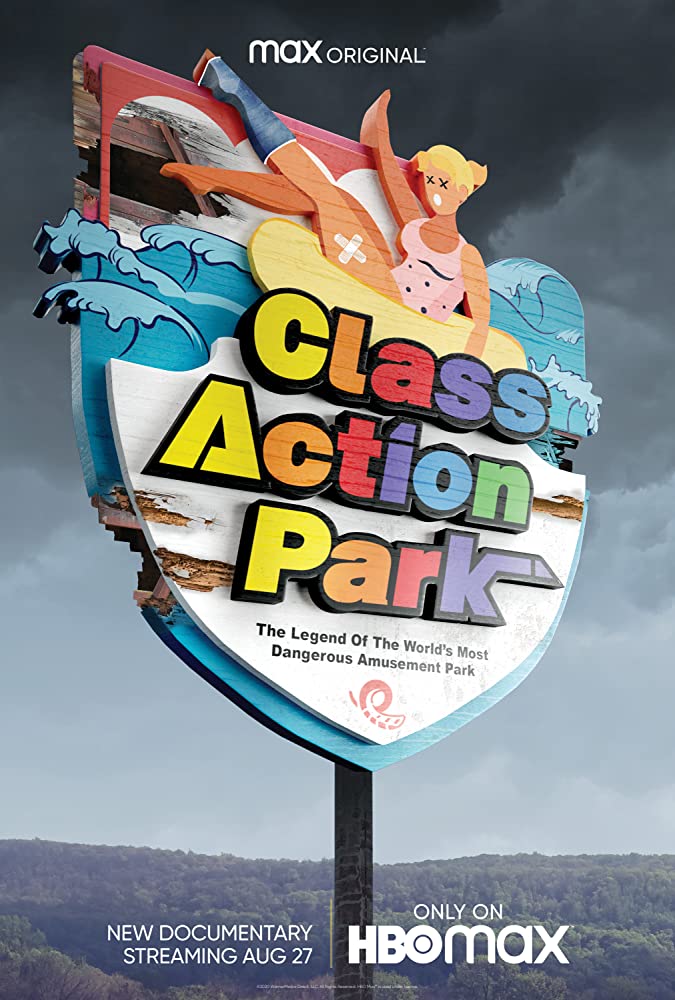Class Action Park [Fantasia International Film Festival Review]
In our day of political correctness and extreme litigiousness, Class Action Park is particularly mind-blowing. The documentary, which screened at the 2020 Fantasia International Film Festival, is about a notorious New Jersey amusement park where the rides were unsafe, the managerial staff was often comprised of teenagers, and there were no rules. (It was also the inspiration for the abysmal Johnny Knoxville comedy Action Point.) Directors Seth Porges and Chris Charles Scott take us through the entire history of the place, with reminiscences from former employees and guests, including comedians Chris Gethard and Alison Becker.
The first section introduces us to the brains behind Action Park. Gene Mulvihill was a sketchy businessman with contempt for authority. He bought up a huge plot of land and began creating his own amusement park, complete with water slides, go-kart racing, and more. Hiring people who understood how to design safe, effective rides entailed spending more than he wanted, so Mulvihill came up with many of the designs himself. That included a steep water slide that took riders through a loop-de-loop. According to the film, he offered $100 rewards to any employees willing to ride it to see if it was safe. A couple lost teeth in the process. It worked, though, as teenagers – lured by the promise of no-rules adventure – started swarming the place.
The second part is the most fun, as the movie takes us through the rides and their specific dangers one by one. Sleds on the alpine slide had faulty brakes, causing people to go around corners too fast and subsequently fly off the concrete track. A white water rafting ride would get congested, making guests slam into each other. Patrons could dive off a 20-foot high cliff into water or get drunk at the bar and take the go-karts for a spin. One water slide began as a near-vertical drop; netting had to be put over a section to rebound riders back onto it if they became too airborne. Hearing these and other tales is often darkly funny, as former employees discuss how common injuries were, but also how that was part of the appeal. Getting hurt became a badge of honor for '80s teens who frequented it.
That all sounds weirdly awesome for a while. Then Class Action Park's final section takes a sad turn. We meet the mother and brother of a 19-year-old boy who died after flying off one of the rides and bashing his head on some rocks. Stories of people drowning in the wave pool are told, as well. Because the park employed so many locals – and because Mulvihill had friends in high places – there were few repercussions for the many injuries and deaths. On one hand, Action Park offered teens a place to push their boundaries, rule-free. On the other, the risk of serious harm was ever-present.
Class Action Park is consistently riveting. I've only given a broad sketch of what the film contains. There's lots of depth in here. A place like Action Park could not exist today. As the documentary explains, it was a product of its time – the Reagan era, when government loosened regulations on businesses, allowing them to operate however the hell they wanted a lot of times. Gene Mulvihill took advantage of that, offering young people a place to get drunk, get crazy, and get hurt. And that was just the employees. Visitors came for the danger. As one interview subject puts it, they arrived knowing they'd have either a day of insane fun or a day that resulted in a trip to the ER. Finding out which it would be was the very thing that made it “special.”
Here's a non-fiction film you'll watch with your jaw perpetually on the floor. Thanks to a ton of home video footage recorded at the height of its popularity, you'll feel like you visited Action Park when it's over.
Note:Class Action Park will be available on HBO Max beginning August 27.
Class Action Park is unrated, but contains adult language and discussion of sexual activity/drug use. The running time is 1 hour and 30 minutes.
